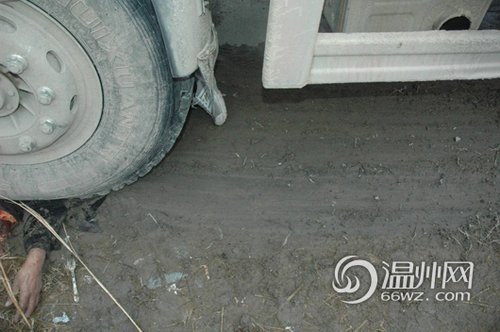Village chief death questioned
Villagers have expressed skepticism over a local government's claims that a former village chief in Yueqing, Zhejiang Province, who had petitioned authorities over a land acquisition issue, was killed as a result of a car accident.
 |
|
Village chief death questioned |
Yueqing police said Monday that 53-year-old Qian Yunhui, a former chief of Zhaiqiao village, died after being run over by an engineering truck Saturday while crossing a road. Police detained driver Fei Liangyu from Anhui Province, who does not have a driving license.
Internet users posted pictures of Qian's body showing the wheel of the truck on his neck. Some pointed out that Qian should have fallen in line with the direction the truck was driving in, and that his neck should not have ended under the wheel.
A statement released by the Yueqing government publicity office said police did not find any evidence pointing to the possibility of murder.
Video footage of the accident was not available, said police.
"I don't believe that Qian simply died in a car accident. If it had been an accident, why did the police detain witnesses?" Qian Hengqiu, treasurer of Zhaiqiao village, told the Global Times Tuesday.
Qian Chengwei, an eyewitness, was detained and had not been released by late Tuesday, Qian Hengqiu said.
Rumors said several masked men had forced Qian under the truck before running over him, a website run by Wenzhou Daily reported Sunday.
About 146 hectares of collectively owned land was taken by a power station owned by the Zhejiang Energy Group in 2004, but villagers have not yet received any compensation, the China Youth Daily reported.
Qian had petitioned on behalf of villagers over the issue of compensation since 2005 after he was elected village chief, and as a result was detained on three occasions, the report said.
An online poll conducted by sina.com showed 99 percent of some 700 voters do not believe Qian died in a car accident.
Xia Xueluan, a sociology professor at Peking University, told the Global Times that the Internet users' opinions reflected a crisis of trust between the public and some local government agencies.
"Corruption and wealth gap have led to a crisis of trust, and it takes time for some local government agencies to rebuild their credibility," said Xia.
 0
0 






